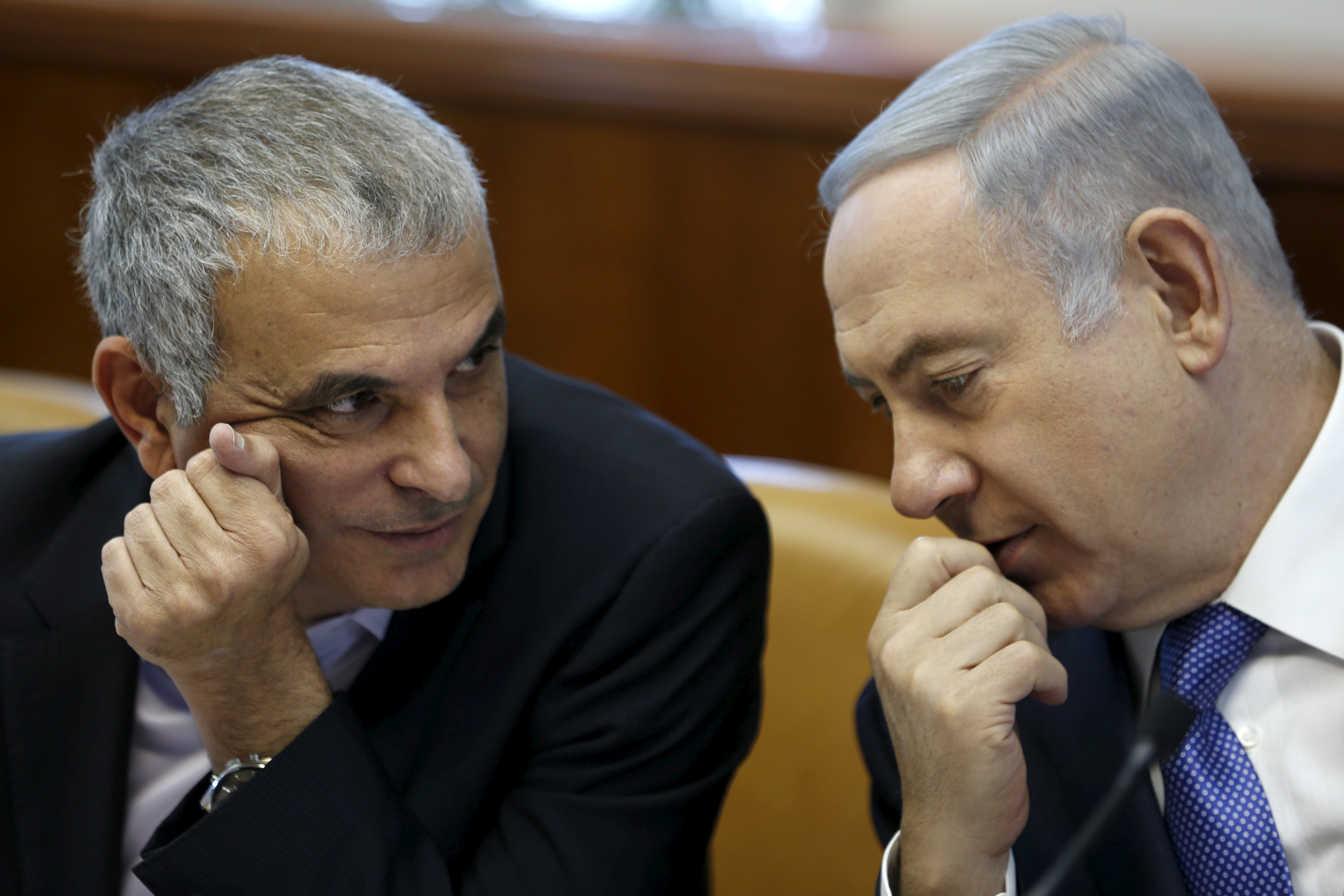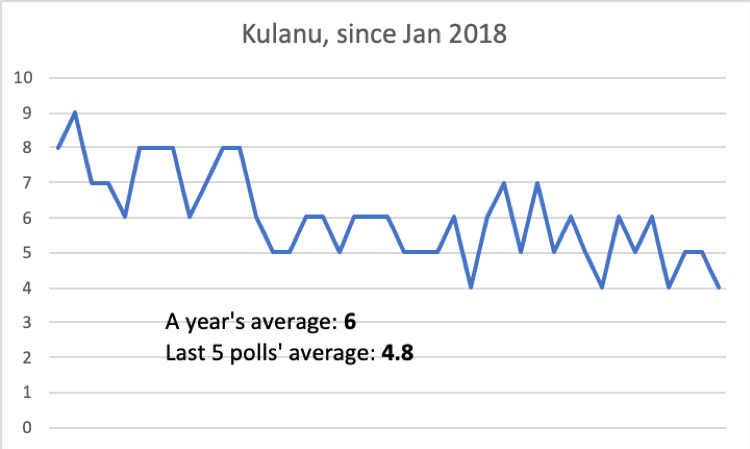 Israeli Prime Minister Benjamin Netanyahu speaks with Finance Minister Moshe Kahlon during the weekly cabinet meeting in Jerusalem January 31, 2016. REUTERS/Amir Cohen/File Photo
Israeli Prime Minister Benjamin Netanyahu speaks with Finance Minister Moshe Kahlon during the weekly cabinet meeting in Jerusalem January 31, 2016. REUTERS/Amir Cohen/File Photo We call this format a Timesaver Guide to Israel’s Coming Elections. This will be a usual feature on Rosner’s Domain until April 9. We hope to make it short, factual, devoid of election hype, and of he-said-she-said no news, unimportant inside baseball gossip.
Bottom Line
Netanyahu still winning hands down.
Main News
Waiting for Benny Gantz’ first speech (Tuesday).
Waiting for the Attorney General to decide what he intends to do with the Netanyahu files.
Waiting for primaries (most importantly in the Likud Party)
Developments to Watch
Political: Gantz’ first speech could give the General a boost or become a disappointment. The question is: Does he become strong enough in the polls to put pressure on Yair Lapid to join him as No. 2 (rather than him joining Lapid as No. 2).
Personal: General Gabi Ashkenazi is still on the fence. According to reports he only agrees to join a merged Lapid-Gantz party, not any of the separate parties.
What’s the Race About
Try to unseat Netanyahu now – or wait and prepare for his later fall down.
Possible Wild Cards:
- War.
- Indictment.
- Significant merger.
The Blocs and Their Meaning
This time we give you something new: a graph looking at the outgoing coalition (the one of 67 seats, before Israel Beiteinu’s departure) in the polls since early 2018. What we see is clear and has three parts.
This coalition got a little smaller (that is, the parties that were a part of it do not get as much in the polls as they got in the 2015 election).
This coalition seems very stable in the past year. The orange column shows the average for the whole year, the green column the average on the last five polls. The two are almost identical.
This coalition has enough votes to form the next coalition. Namely, if all parties agree to rejoin the coalition they just dismantled, Netanyahu has a coalition. But – it will be small and fragile. A 63 or 64 seat coalition must be highly functioning to survive.

Focus on One Party
Here is why the current Israeli election is so unpredictable. Kulanu, the centrist party of Finance Minister Moshe Kahlon has 10 seats in the Knesset. But the public doesn’t seem to be satisfied with it. In early 2018 it had less than 10 in the polls, and the decline continued throughout the year. So much so, the Kulanu is not far from the danger zone of the electoral threshold (about 4 seats). Namely, more decline, and the party is gone. The only question remains is how many voters are going to throw their good vote on a losing cause. Why is Kulanu in such situation? Because it was never coherent, because Finance Minister is hardly a position that makes a politician popular, because other, newer, shinier parties (like Gesher) steal away Kahlon’s social agenda. There was some pressure on Kahlon to rejoin Likud, but he insists on running alone. Time will tell if this decision ended a successful political career.

Israel’s Elections on rosner’s Podcast
Listen to political commentator Yaron Deckel, analysing the elections.
Listen to Member of Knesset Wannabe Avi Buskila, as he talks about the future of Israel’s left.
Stay tuned for political analyst Dana Weiss (coming up Tuesday), explaining the lure and power of Netanyahu.






















 More news and opinions than at a Shabbat dinner, right in your inbox.
More news and opinions than at a Shabbat dinner, right in your inbox.